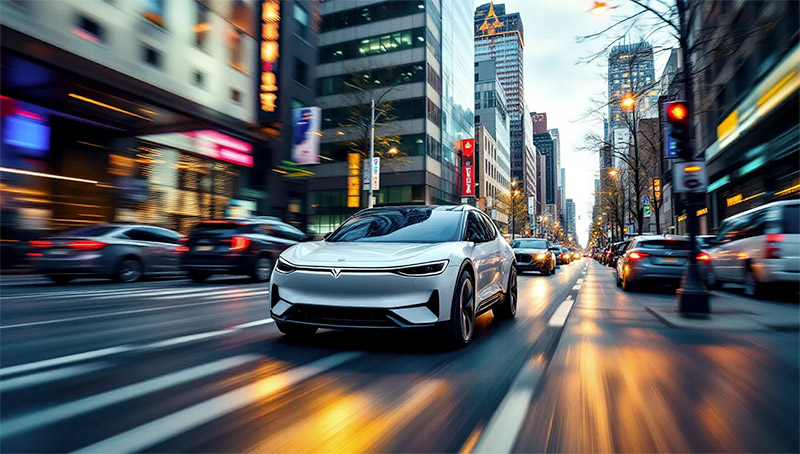The automobile industry is undergoing a massive transformation as electric vehicles (EVs) gain popularity, challenging the dominance of traditional gas-powered cars. With growing concerns over climate change, rising fuel costs, and advancements in battery technology, many consumers are now considering switching to EVs. But how do they compare to gas cars? In this blog post, we’ll explore the key differences between EVs and gas cars to help you make an informed decision.
Environmental Impact
One of the biggest advantages of EVs is their lower environmental footprint. Unlike gas cars, which rely on fossil fuels, EVs produce zero tailpipe emissions. This helps reduce air pollution and carbon emissions, making EVs a more sustainable choice. However, the environmental impact of EVs depends on the source of electricity used for charging. If the electricity comes from renewable sources, EVs become even greener.
PROS of EVs
- Zero tailpipe emissions, reducing air pollution
- Lower carbon footprint, especially with renewable energy sources
- Less reliance on fossil fuels
CONS of EVs
- Electricity production can still generate emissions, depending on the source
- Battery production has environmental concerns, including mining of raw materials

Cost of Ownership
When comparing EVs and gas cars, cost is a major factor. While EVs typically have a higher upfront price, they offer significant savings in the long run. Here’s how:
- Fuel Costs: Charging an EV is generally cheaper than filling up a gas tank, especially in regions with affordable electricity rates.
- Maintenance: EVs have fewer moving parts and don’t require oil changes, reducing maintenance costs.
- Government Incentives: Many countries and states offer tax credits and rebates for EV buyers, making them more affordable.
Gas cars, on the other hand, have lower initial costs but require frequent fuel purchases and maintenance, which can add up over time.
PROS of EVs
- Lower fuel and maintenance costs over time
- Government incentives can reduce upfront costs
- Fewer mechanical components mean less wear and tear
CONS of EVs
- Higher initial purchase price
- Charging infrastructure and home charging installation can be expensive
Performance and Driving Experience
EVs are known for their smooth and quiet ride. They offer instant torque, providing quick acceleration and a more responsive driving experience. Additionally, EVs have fewer vibrations since they don’t have traditional combustion engines.
Gas cars, however, still dominate in terms of range and refueling convenience. While EV charging infrastructure is growing, gas stations remain more widespread, allowing drivers to refuel quickly and continue their journey without long waits.
PROS of EVs
- Instant torque for fast acceleration
- Quiet and smooth driving experience
- Fewer moving parts, leading to potentially longer durability
CONS of EVs
- Charging can take longer than refueling a gas car
- Limited driving range compared to gas vehicles

Range and Charging Infrastructure
When comparing EVs and gas cars, cost is a major factor. While EVs typically have a higher upfront price, they offer significant savings in the long run. Here’s how:
- Fuel Costs: Charging an EV is generally cheaper than filling up a gas tank, especially in regions with affordable electricity rates.
- Maintenance: EVs have fewer moving parts and don’t require oil changes, reducing maintenance costs.
- Government Incentives: Many countries and states offer tax credits and rebates for EV buyers, making them more affordable.
Gas cars, on the other hand, have lower initial costs but require frequent fuel purchases and maintenance, which can add up over time.
PROS of EVs
- Home charging convenience
- Increasing availability of fast-charging stations
CONS of EVs
- Charging takes longer than refueling
- Charging infrastructure is still growing but not as widespread as gas stations
Resale Value and Longevity
Gas cars have been around for over a century, and their resale value is often easier to predict. However, as demand shifts towards EVs, traditional gas cars may see a decline in resale value over time.
EVs, while improving in battery longevity, face concerns regarding battery degradation. However, advancements in battery technology and warranties (often covering eight years or more) are making EVs a more reliable long-term investment.
PROS of EVs
- Improved battery warranties and longevity
- Growing market demand for used EVs
CONS of EVs
- Battery degradation over time
- Uncertain long-term resale value compared to gas cars
Which One Should You Choose?
Deciding between an EV and a gas car depends on your priorities and lifestyle. If you prioritize sustainability, lower long-term costs, and a modern driving experience, an EV is a great choice. However, if you need long-range travel capabilities and fast refueling, a gas car may still be more practical.
Summary of Pros and Cons:
PROS of EVs
- Eco-friendly with zero tailpipe emissions
- Lower fuel and maintenance costs
- Instant acceleration and smooth driving
- Home charging convenience
CONS of EVs
- Higher upfront cost
- Charging infrastructure still developing
- Longer refueling time
PROS of Gas Cars
- Lower initial purchase price
- Quick and easy refueling
- Longer range on a full tank
- Established resale value
CONS of Gas Cars
- Higher fuel and maintenance costs over time
- Dependence on fossil fuels
- More emissions and environmental impact
FAQ
Yes, EVs have fewer moving parts, no oil changes, and lower overall maintenance costs compared to gas-powered vehicles.
Charging times vary. Fast charging can take around 30 minutes, while home charging can take several hours depending on the charger type.
It depends on the availability of charging stations. While EVs have lower range than gas cars, rapid charging networks are expanding to accommodate long trips.
While gas cars are still widely used, many governments and automakers are shifting towards electric mobility, which may phase out gas cars in the coming decades.
Final Thoughts
As technology advances and charging infrastructure improves, EVs are becoming an increasingly attractive option. Whether you choose an EV or a gas car, the future of transportation is shifting toward cleaner and more efficient solutions. If you’re considering making the switch, now is a great time to explore your options and make an eco-conscious decision.
By understanding the pros and cons of both EVs and gas cars, you can choose the vehicle that best fits your needs and lifestyle. Happy driving!
Related Posts
The 2026 Online Income Tutorial: Low-Effort, High-Return Strategies
The top 2026 online income tutorial combines AI, niche skills, and automation for low-effort,…
How Amazon Makes Online Shopping Fast and Enjoyable
Amazon makes online shopping fast, fun, and convenient for tech gadgets, home appliances, and kids’…
5 Must-Have Wellness Tech Kits for 2026
2026 marks the shift from generic wellness tech to truly personalized care. Smarter wearables and…
AI vs. Nature’s Fury: Revolutionizing Natural Disaster Management
AI is revolutionizing how we handle natural disasters—enhancing early warnings, streamlining…
Top 10 Best-Selling Portable EV Chargers
As electric vehicles (EVs) grow in popularity, a reliable portable charger is essential. Here are…
Which Top 10 Smart Home Products on Amazon Will Upgrade Your Life?
Discover the top 10 smart home products on Amazon that can simplify and upgrade your daily…
Best Routers by Type: Mesh, Gaming, Smart, and More for Fast, Secure, and Reliable Internet
Explore the best types of routers—including mesh, gaming, and smart options—to enhance your digital…
Top 10 Things to Consider Before Investing in a Hi-Tech 3D Printer
Keep these top 10 essentials in mind before purchasing a hi-tech 3D printer to make the most of…
The High-Tech Revolution: A Before-and-After Perspective
Technology's Before-and-After impact extends beyond tools, transforming environments and societies…
The Ultimate Hi-Tech Wish List: Gift Ideas for the Gadget Enthusiasts
Whether it’s for a birthday, holiday, or just to show you care, this hi-tech wish list will help…










